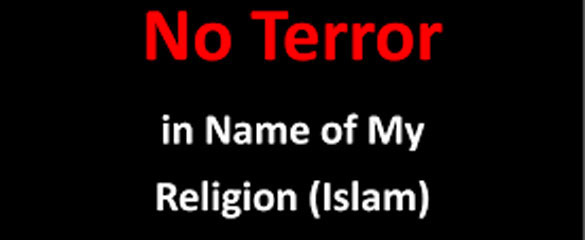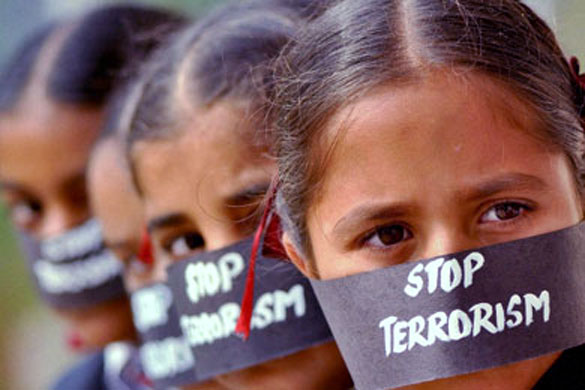New Age Islam Special Correspondent
6 November 2020

Since its inception, Bangladesh has got a great adherence to the syncretic Indian-origin Islamic heritage with its inherent inclusivism as an integral part of identity for the Bengali Muslims. Most Muslim denominations in Bangladesh—Deobandis, Barelwis & Sunni-Sufis who are around 96%—have their centrality in India. But what has happened recently that even these Indian-origin strains are likely to give way to radical Islamist streams?
In the case of the Vienna terror incident, the Austrian police has detained 14 youths including the two young Bangladeshi between the ages of 18 and 28. Though, as of writing this piece, the police are trying to incept their involvement in the terror plot and their affiliation to ISIS. But given the global image of Bangladesh as one of the most moderate and secular Muslim nations in South Asia, it should have been unlikely for the country’s youths to align with the global Islamist terror organisations like the ISIS and its caliphate narratives.
In Bangladesh, until recently only local Islamists—Islami Andolan Bangladesh, Islami Shasantantra Chhatra Andolan, JeI, HuJI, Bangladesh Bangla Bhai etc— were involved in terror activities. But since 2016, ISIS and Al Qaida became the driving force behind the violent extremism in Bangladesh. A study of IS and AQ's propaganda narratives in Bangladesh shows that the West in general, and India in particular are pitched as enemies of the ‘Islamic agenda’ in Bangladesh. AQIS has adopted a propaganda-centric approach to gain a foothold in the country. The Jama’at affiliates within the deep state have become more vociferous against India. For instance—a pro-Jama’at Bangladeshi Army ex-Major Delwar Hossain said in a video footage that surfaced on social media recently: "A list of 'Indians in Bangladesh' and 'India-loving Bangladeshis' will soon be prepared to kick them out of the country to offer job opportunities to Islamic youth only”.
Also, the oasis of political Islam of today, Turkey which has historical relations with Bangladesh constantly woos the Bengali Muslims through massive support to the Rohingyas as well as popularisation of Turkish drama serials in Bangladesh. Bangladesh inaugurated its new embassy complex in Ankara on Sep 14, 2020. Sheikh Hasina, virtually joining the opening ceremony, said her country and Turkey shared deeply rooted values and history and the opening of the new embassy would further their close relations. Hasina lauded Ankara administration’s support to Rohingya Muslims and invited Erdogan to visit Bangladesh on the occasion of the 100th birth anniversary of the country's founding father Sheikh Mujibur Rahman. She added: "Our relationship, however, can be traced in the 13th Century, when Turkic General Muhammad Bakhtiar Khiljee, conquered Bengal. The relations between the two countries are deeply rooted in shared history, faith, and traditions.

In addition to strategic compulsions, there are pressure groups within the deep state and outside, along with several fundamentalist groups in Bangladesh calling for a Shariah-based state which may not be ruled out after the end of the current regime. Bangladesh had become a hotbed of violent religious extremism during the BNP-Jama’at government, with 500 simultaneous bomb explosions in 63 districts of Bangladesh conducted by terrorist organisation, Bangla Bhai which shook the core of the country. Radical Islamists would openly chant in Bangla, "Sobai Hobey Taliban, Bangladesh Hobey Afghan". (All will become Taliban; Bangladesh will turn into Afghanistan).
The Awami League, with its roots in secularism, didn’t capitulate to the demands of Sharia law by Islamist hardliners. But in the 2018 elections, it decided to gather support of the Islamist groups, in a rivalry to the opposition party BNP which aligned with JeI, the largest Islamic party in Bangladesh. Sheikh Hasina sought the support of Ahmad Shafi’s Hefazat-e-Islam, a coalition of several Islamist parties in the country. Consequently, Hasina agreed to changes in public school textbooks to make them more “Islamic” as demanded by Hefazat and announced that her government would recognize degrees from thousands of unregulated Qaumi madrassas run by Hefazat.
Notably, Hefazat-e-Islam Bangladesh founding leader Ahmad Shafi belonged to a band of Islamists that unlike JeI, did not oppose the independence of Bangladesh. He supported a united India and rejected the creation of Pakistan. Now after Shafi has recently died and his successor is Junaid Babunagari, who backs the opposition party (BNP) and its ally JeI, the future of Bangladeshi secularism vs. pan-Islamism is uncertain. The lines have blurred more now because of the lack of a clear position on where Bangladesh stands vis-à-vis state and religion. In all likelihood, this will help breed more Islamist fundamentalism and anti-India sentiments in the country.

At a time when radical and Political Islam continues to pose threats to the cultural and civilizational values of Bangladesh. This is where the classical Indian Islam and its seminaries have a pivotal role to play by deepening their historical and traditional linkages through the centrality of Deoband and Bareilly, in addition to the joint counter-radicalisation efforts of the modern, progressive and pluralist Muslim institutions in India and Bangladesh. China and Turkey seek to undermine the Bengali part and reinforce the Islamic aspects of Bangladeshi Muslim society to disassociate it with its Indian origins, culture and ethos, with Pakistan nudging the two countries to decrease India’s influence in South Asia. More to the point, an oscillation between religion and secularism in the country is further leading to proclivity towards pan-Islamist currents in Bangladesh. The classical Indian Islamic seminaries and their progressive products in Bangladesh must take specific steps and effective measures to mitigate and counter-influence the radical Islamic propaganda in Bangladesh.
New Age Islam, Islam Online, Islamic Website, African Muslim News, Arab World News, South Asia News, Indian Muslim News, World Muslim News, Women in Islam, Islamic Feminism, Arab Women, Women In Arab, Islamophobia in America, Muslim Women in West, Islam Women and Feminism




 Moderate Islamist here
Moderate Islamist here


0 comments:
Post a Comment